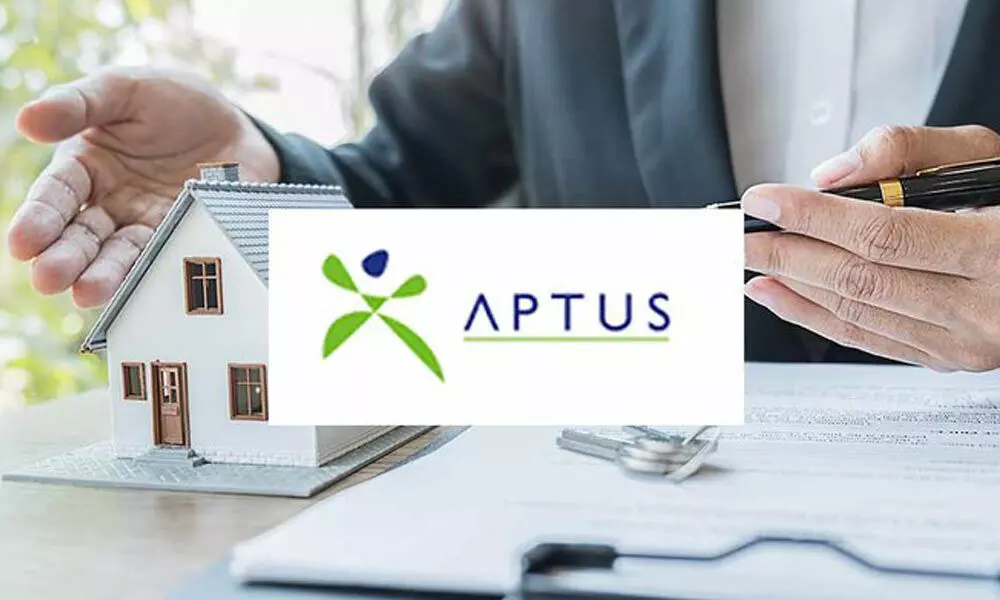Aptus Value Housing: Take a call on post-listing
The price-to-book ratio is a staggering 8.41-8.58 times the NAV of Rs 41.12. This would make it the most expensive price-to-book in the entire BFSI space. Hence, better to wait for results for the June quarter
image for illustrative purpose

The company has a rural focus as over 60% of the loans are in this segment. It has a ticket size of lending between Rs 5 lakhs to 15 lakhs and is present in four contiguous States. Going forward it would expand and grow in the adjoining States of Maharashtra, Orissa and Chhattisgarh. This would ensure better penetration and utilisation of branch network
Aptus Value Housing Finance India Limited, which is tapping the capital markets with its fresh issue of Rs 500 crore and an offer for sale of 6,45,90,695 shares, completed allocation to anchor investors. The price band of the issue is Rs 346-353. The issue has opened on Tuesday (August 10) and closes on Thursday (August 12).
The company allotted 2,36,26,500 equity shares to 26 Anchor investors comprising 36 entities at the top end of the band of Rs 353. The highest allocation was made to WF Reconnaissance Fund Limited, which was allotted 29,42,772 shares or 12.46 per cent of the anchor allotment. This was followed by Smallcap World Fund, which was allotted 24,45,912 shares or 10.35 per cent of the anchor allotment. This was followed by the Genesis group who was allotted 9.15 per cent of the shares through three entities. The top three anchors were allotted 31.96 per cent of the anchor book. Overall, FPI's were allotted 91.72 per cent of the anchor book, while Domestic investors were allotted 8.28 per cent of the book.
The company as the name suggests is into the business of providing loans for buying homes. It currently operates in the four Southern States of Tamil Nadu, Telangana, Andhra Pradesh and Karnataka. The three main segments under which the company lends is home loans, business loans and Quasi home loans which account for 90-92 per cent of the loan book. The balance is made up of top-up loans and insurance loan.
The insurance is taken out for the value of loan given on the life of the borrower at the time of initiation of the loan. This ensures that there can be no ultimate default. The company's portfolio of loans is concentrated amongst LIG (lower income group) customers, self employed borrowers and new to credit customers/borrowers. There is a rural focus and over 60 per cent of the loans are in this segment.
Aptus has a stringent process of monitoring loans and the collection of monthly instalments. This has ensured zero bad debts since inception and a NPA of 0.7 per cent. The company has been able to produce robust and resilient results even during the pandemic period. While there were dips, they have moved back to steady state levels soon after.
The company compares itself with the likes of Aavas Financers, Home First and Aadhar Housing. It compares very favourably with them on all parameters. The one place it lacks is the total AUM which is at par with Home First but less than half that of Aavas and less than a third of Aadhar.
There is significant growth potential for housing finance in India and even more for affordable housing. While the company does not advertise the fact that it lends under affordable housing schemes of the government, it does disburse loans under the scheme and passes on the benefits of the same to its customers.
The company has a ticket size of lending between Rs 5 lakhs to 15 lakhs and is present in four contiguous States. Going forward it would expand and grow in the adjoining States of Maharashtra, Orissa and Chhattisgarh. This would ensure better penetration and utilisation of branch network. Aptus has its own software, app and uses technology liberally to help a smoother onboarding of customers, tracking their loans and repayment and also use of analytics for eutomer behaviour.
The company reported revenues of Rs 655.2 crores for the year ended March 21, profits of Rs 266.8 crores and an EPS of Rs 5.5 for the year. Based on this EPS, the price earnings multiple is 62.34-63.60. The price-to-book ratio, which is another important matrix referred to in the BFSI space, is a staggering 8.41-8.58 times the NAV of Rs 41.12. This would make it the most expensive price-to-book in the entire BFSI space.
FPIs love the business of affordable housing, retiral homes and the concept of first-time homebuyers by the unbanked and are willing to pay unheard of valuations for the same. This is reflected in the anchor book and the fancy valuations at which the PE investor is exiting.
While the current mood of investors as regards the primary market was very bullish till last week, the poor performance of the last two listings has dampened the sentiment and affected subscriptions in the ongoing issues. It's a tough call trying to balance expectation and reality. I would like to give the issue a miss even though the same would be oversubscribed in the retail category. Take a call on the issue post-listing and when results for the June quarter are declared by the company.
(The author is the founder of Kejriwal Research and Investment Services, an advisory firm)

